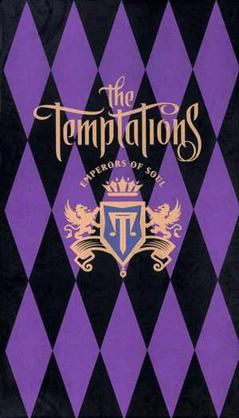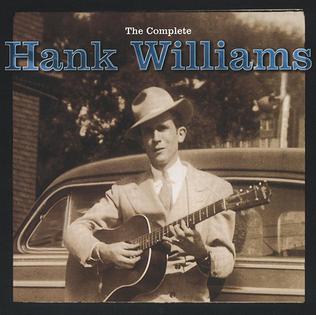
The "Battle Cry of Freedom", also known as "Rally 'Round the Flag", is a song written in 1862 by American composer George Frederick Root (1820–1895) during the American Civil War. A patriotic song advocating the causes of Unionism and abolitionism, it became so popular that composer H. L. Schreiner and lyricist W. H. Barnes adapted it for the Confederacy.

"Pretty Baby" is a song written by Tony Jackson during the Ragtime era. The song was remembered as being prominent in Jackson's repertory before he left New Orleans in 1912, but was not published until 1916.

Emperors of Soul is a 1994 box set compilation for The Temptations, released by Motown Records. The five-disc collection covers the Temptations' entire four-decade history, from the first recording of The Distants in 1959 to four new recordings by the then-current Temptations lineup of Ali-Ollie Woodson, Theo Peoples, Ron Tyson, and stalwart members Otis Williams and Melvin Franklin.
For The Dear Old Flag, I Die is an American Civil War song. It was originally a poem written by George Cooper. The music by Stephen Foster was later added in. The song interprets the last words of a drummer boy who was fatally wounded at the Battle of Gettysburg.
"Sussex by the Sea" is a song written in 1907 by William Ward-Higgs, often considered to be the unofficial county anthem of Sussex. It became well known throughout Sussex and is regularly sung at celebrations throughout the county. It can be heard during many sporting events in the county, during the Sussex bonfire celebrations and it is played by marching bands and Morris dancers across Sussex. It is the adopted song of Brighton & Hove Albion Football Club, Sussex Division Royal Naval Reserve, Sussex Association of Naval Officers and Sussex County Cricket Club.
"Over the Hills and Far Away" is a traditional English song, dating back to at least the late 17th century. Two versions were published in the fifth volume of Thomas D'Urfey's Wit and Mirth, or Pills to Purge Melancholy; a version that is similar to the second Wit and Mirth one appears in George Farquhar's 1706 play The Recruiting Officer. A further version appears in John Gay's The Beggar's Opera of 1728.

The Toreador is an Edwardian musical comedy in two acts by James T. Tanner and Harry Nicholls, with lyrics by Adrian Ross and Percy Greenbank and music by Ivan Caryll and Lionel Monckton. It opened at the Gaiety Theatre in London, managed by George Edwardes, on 17 June 1901 and ran for an extremely successful 675 performances. It starred Marie Studholme, Gertie Millar, Harry Grattan, Edmund Payne, George Grossmith, Jr. and the young Sidney Bracy. Gabrielle Ray later joined the cast. The show also enjoyed Broadway runs in 1902 and 1904 and toured internationally.

My Son, the Folk Singer is an album by Allan Sherman, released by Warner Bros. Records in 1962. On the album sleeve, the title appears directly below the words "Allan Sherman's mother presents."

The Complete Hank Williams is a 1998 box set collecting almost all of the recorded works of country music legend Hank Williams, from his first recorded track in 1947 to the last session prior to his untimely death in 1953 at the age of 29. While a number of live and overdubbed songs are excluded, the ten disc collection contains 225 tracks, including studio sessions, live performances and demos. Among those 225 songs are 33 hit singles and 53 previously unreleased tracks.

"Golden Arrow" is a popular song published both as an intermezzo two-step and a ballad in 1909. The music was composed by Egbert Van Alstyne, with lyrics added by Harry Williams. The ballad is a love story between the unnamed son of a Chief Arrow-Bow and a maiden named Golden Arrow, both of the Sioux nation in Idaho.

Completely Cilla: 1963–1973 is a compilation album released of music by British pop singer Cilla Black. The compilation album is a prelude to Black's 50th anniversary in show business – it is the largest released compilation album of her music containing 139 digitally remastered recordings.
"Go Limp" is the penultimate track on Nina Simone's 1964 album Nina Simone in Concert, and is an adaptation of a protest song originally written by Alex Comfort during his involvement with the Campaign for Nuclear Disarmament.
Lloyd George's Beer Song is a World War I era song written and composed by R. P. Weston and Bert Lee. The song is a response, or rather a good-natured complaint, against then Prime Minister David Lloyd George's actions to reduce alcohol consumption during wartime.

Bob Miller was an American songwriter, recording artist, A&R representative, and publisher.

"Joe Bowers", sometimes called "Old Joe Bowers", is an American folk song that originated in the 1850s. Its lyrics detail the protagonist, Joe Bowers, traveling to California from Pike County, Missouri in order to finance a home for his bride-to-be, Sally Black, though she eventually marries another man. The song was one of the most popular of its time, being a particular favorite among Confederates during the American Civil War, and still retaining relevance throughout the late 19th and early 20th century. The song is also known for later giving its tune to the anti-American Confederate song, I'm a Good Ol' Rebel.










